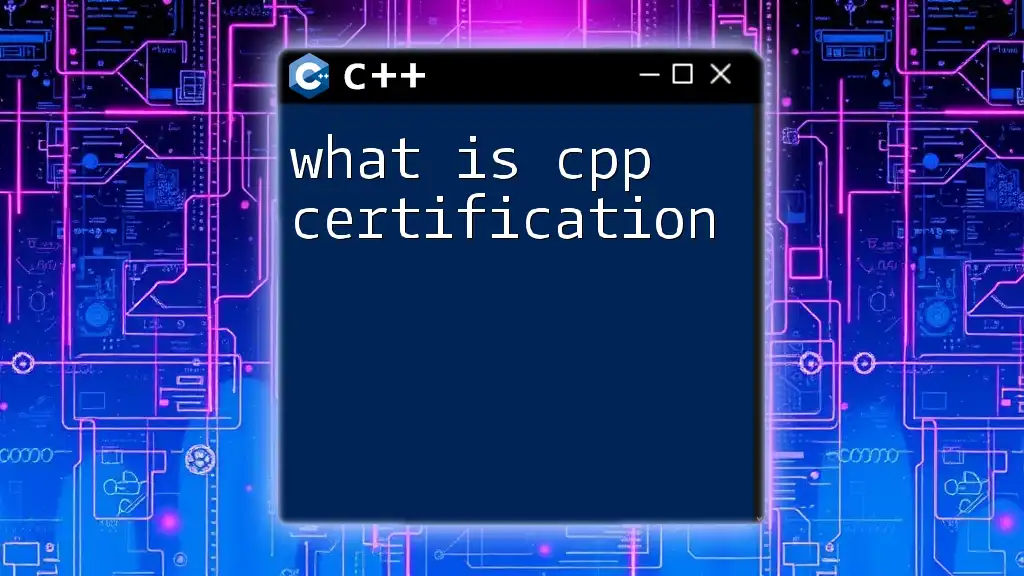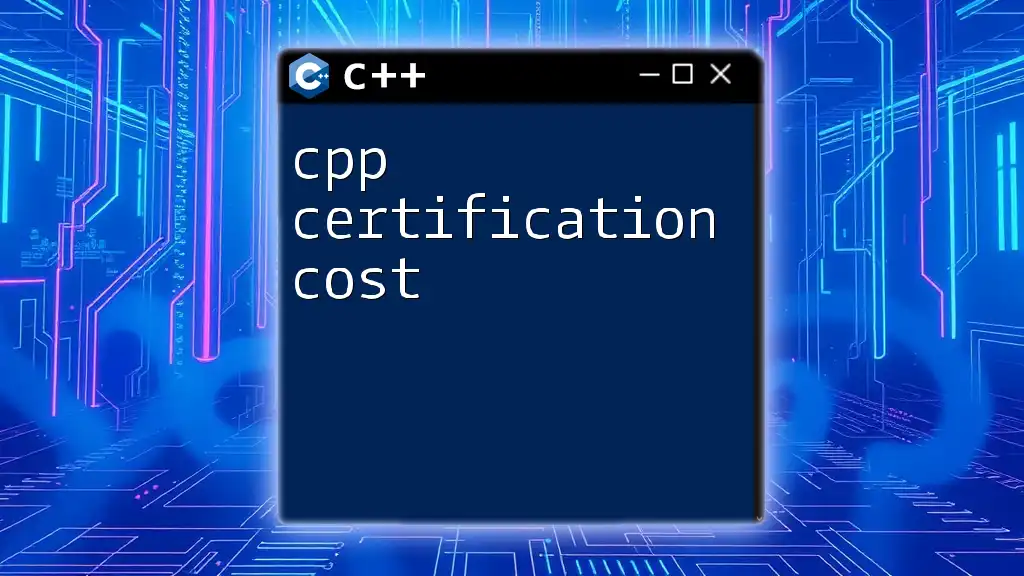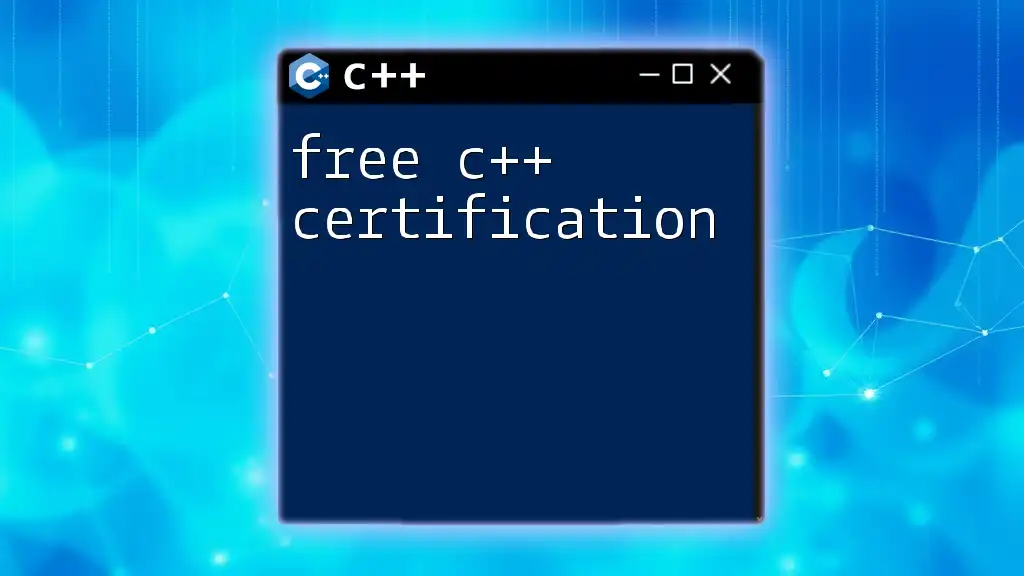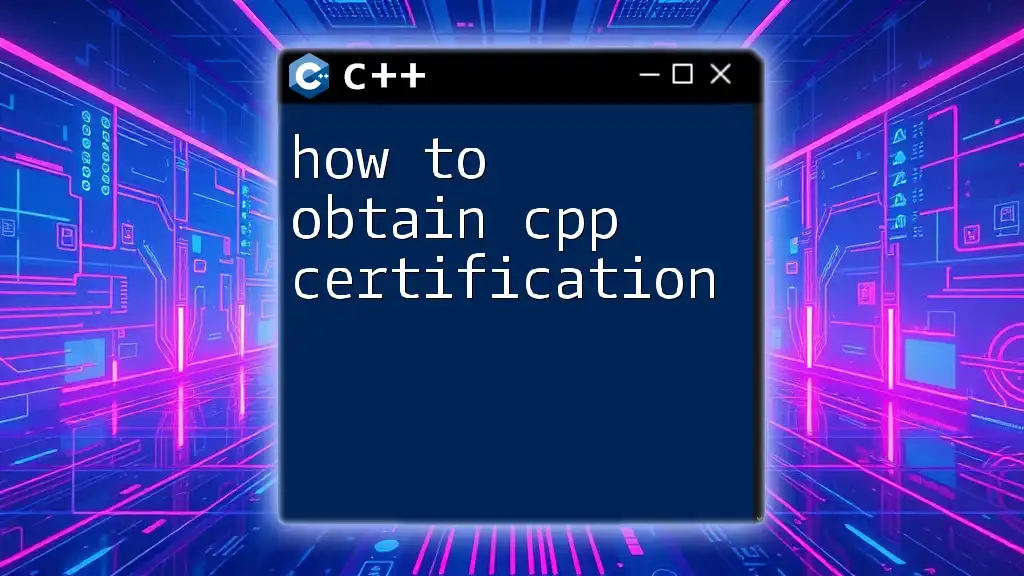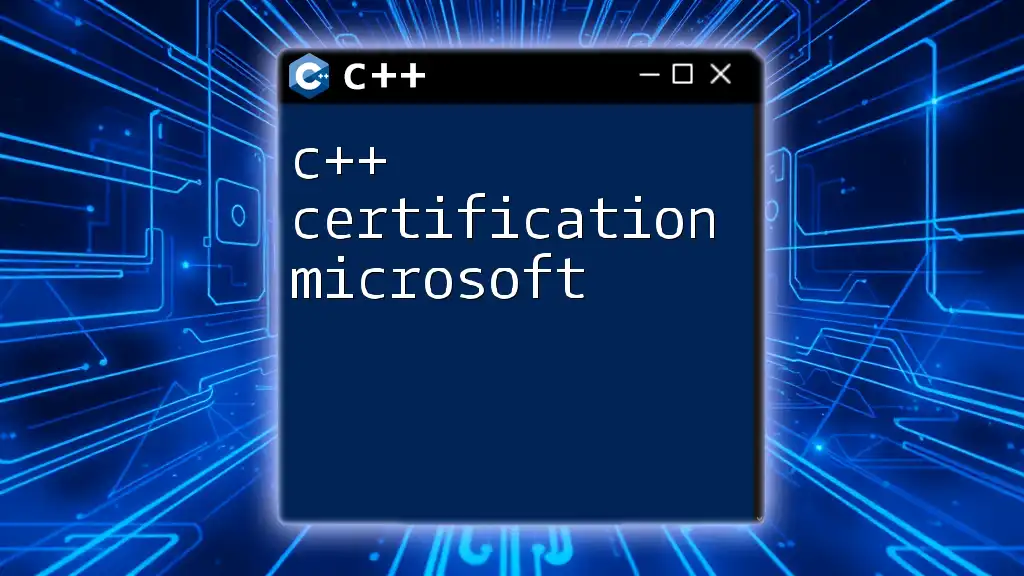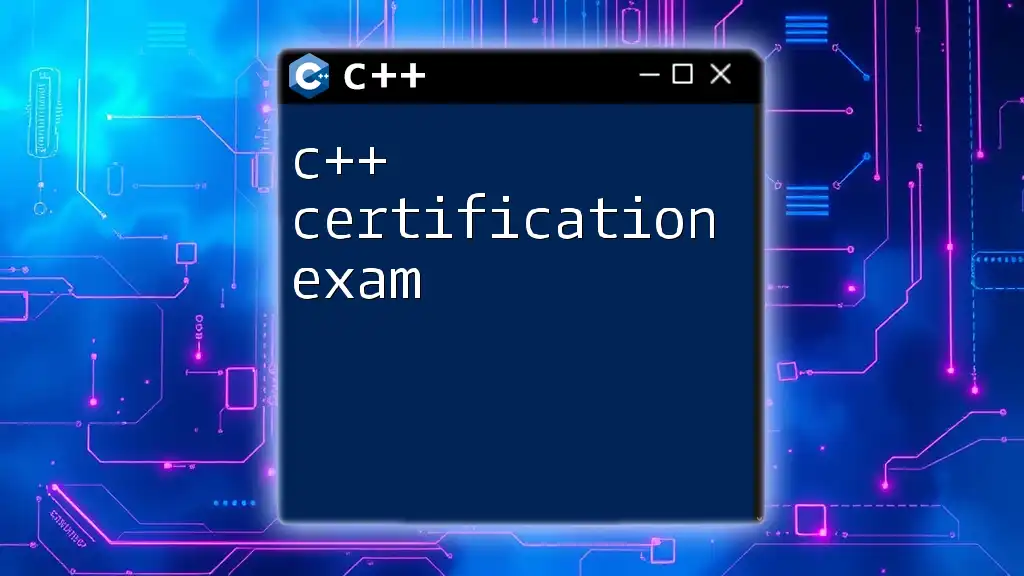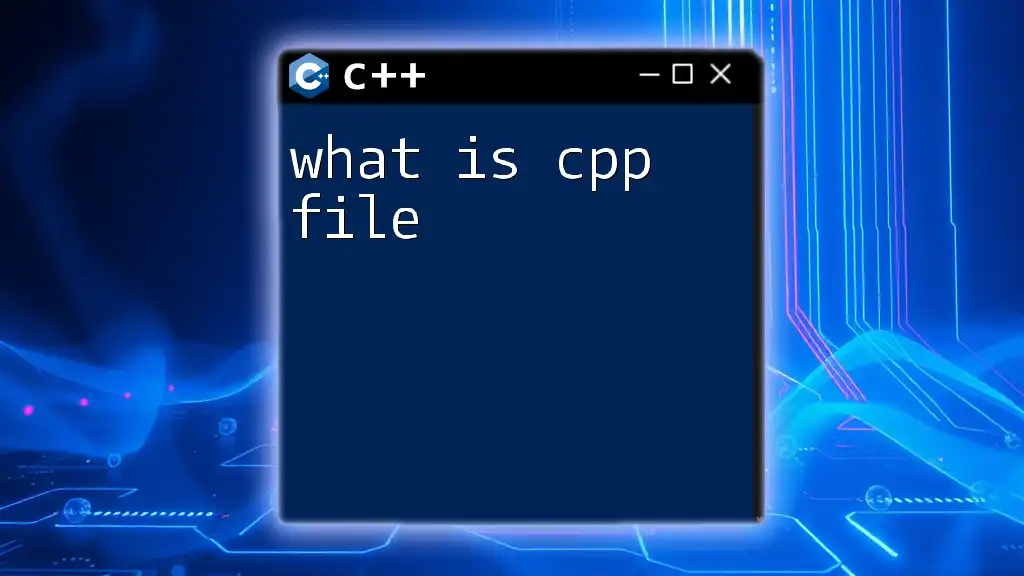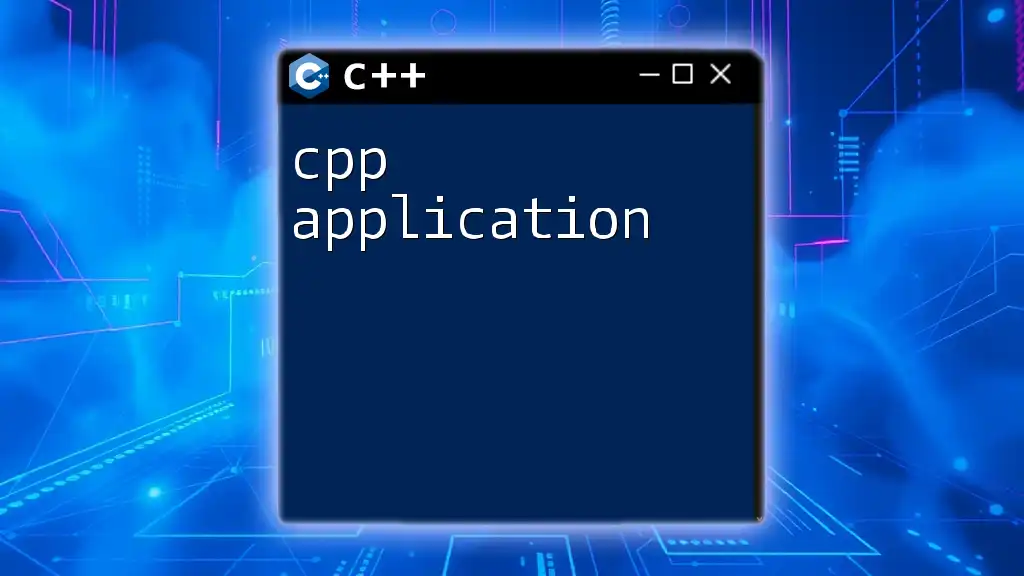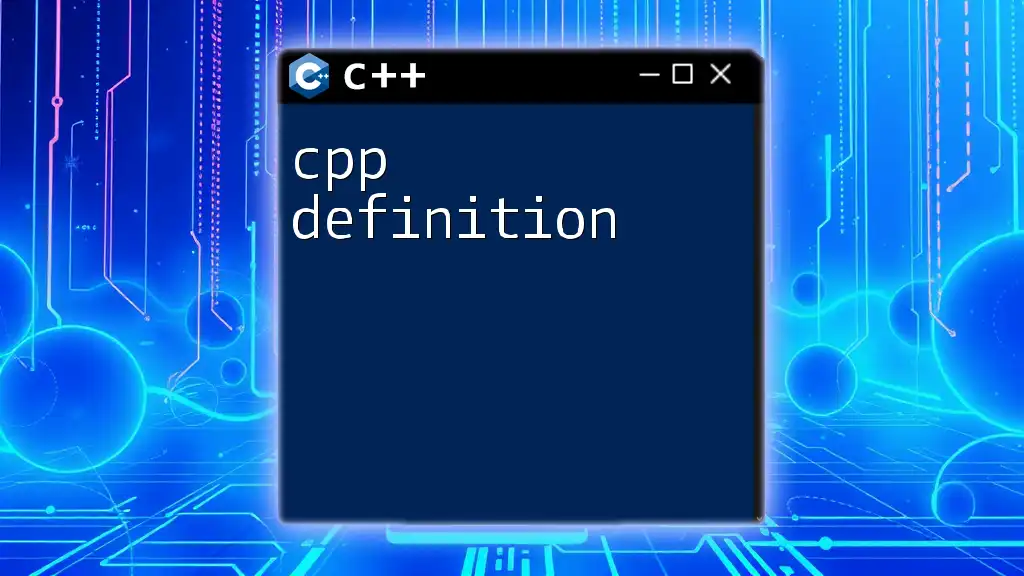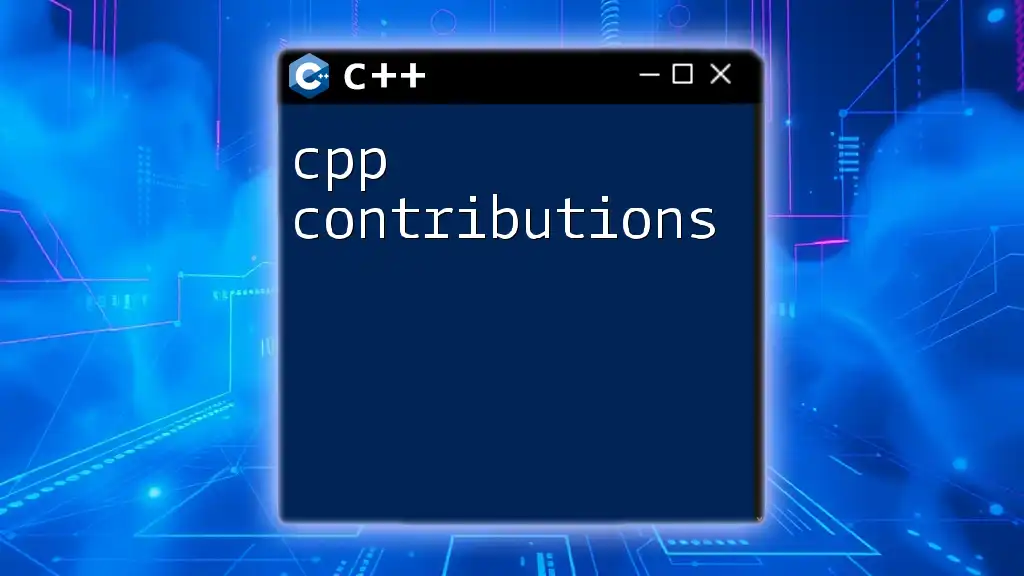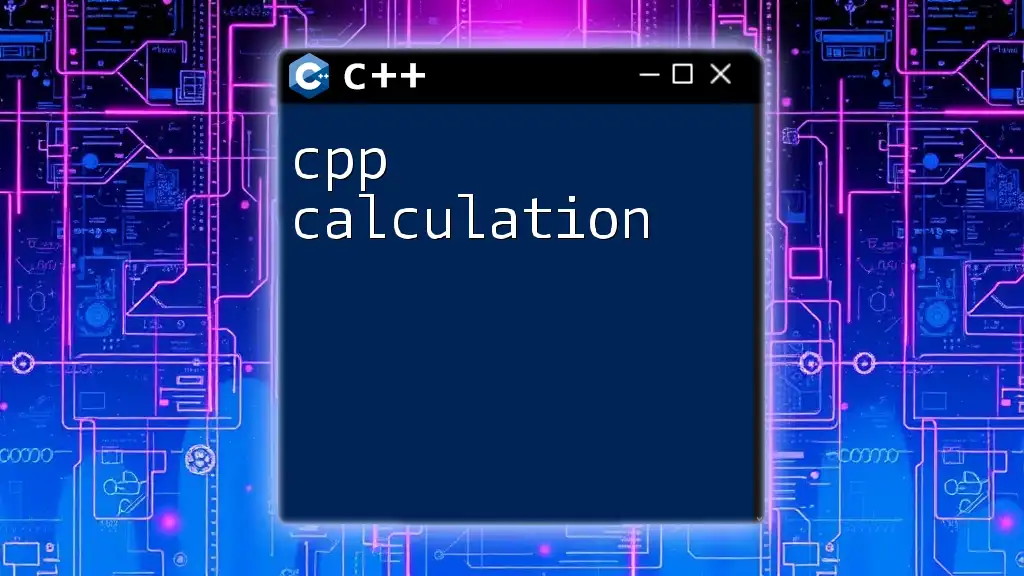CPP certification refers to a formal acknowledgment that an individual has demonstrated proficiency in using C++ programming commands and concepts, validating their skills in software development.
Here’s an example of a C++ command in markdown format:
#include <iostream>
int main() {
std::cout << "Hello, World!" << std::endl;
return 0;
}
What is CPP Certification?
CPP certification, or C Preprocessor certification, is designed to validate an individual's knowledge and proficiency in using the C Preprocessor in software development. Obtaining this certification demonstrates expertise in handling C programming tasks, which are essential for writing high-quality, maintainable code.
Definition of CPP Certification
CPP certification involves a thorough examination that assesses a candidate’s understanding and practical skills in using the C Preprocessor. It is typically offered by various organizations and educational institutions that focus on programming and software development.
Purpose of CPP Certification
The primary purpose of CPP certification is to provide individuals with a formal acknowledgment of their capabilities in the C programming language. For employers, it serves as a benchmark to evaluate a candidate's skills, ensuring that those who hold it are proficient in vital programming concepts.
Benefits of Obtaining CPP Certification
Career Opportunities
Having a CPP certification opens up numerous career pathways in software engineering and related fields. Professionals with this certification are often considered for roles such as:
- System programmers: Engaged in developing system-level software that directly interacts with hardware.
- Embedded systems engineers: Focused on programming embedded systems, which often require a sharp understanding of C.
Skill Development
The journey to obtaining a CPP certification encourages individuals to sharpen their programming skills significantly. Candidates explore fundamental concepts, including:
- Macros: Understanding how to define and use macros to simplify repetitive tasks in code.
- Conditional Compilation: Grasping the use of preprocessor directives to control code compilation based on specific conditions.
Stay Competitive
In a rapidly evolving tech landscape, staying updated with industry standards through certification can give candidates a competitive edge. This commitment to continuous learning showcases one's dedication to professional growth.
Requirements for CPP Certification
Prerequisites
Before pursuing CPP certification, candidates should have a foundational knowledge of programming, particularly experience working with basic C concepts. While there is no strict barrier to entry, familiarity with programming logic will significantly aid in the certification process.
Certification Bodies
Several recognized organizations offer CPP certification, each with its unique approach and curriculum. This diversity allows candidates to choose a program that aligns with their career goals and learning preferences. Comparing the syllabus, examination format, and support offered can help in selecting the right certification body.
The Certification Process
Steps to Getting Certified
The certification process begins with registering for the exam through the chosen organization. It is essential to understand the recommended study materials and resources provided by these organizations, which can include online courses, textbooks, and practice exams.
Exam Format
Most certification exams are a combination of multiple choice questions and practical coding tasks. Here are key aspects of typical exam questions:
- Theory Questions: Conceptual questions regarding C Preprocessor directives.
- Practical Tasks: Code writing tasks that test your ability to implement macros and conditional compilations effectively.
A possible example question may involve writing a macro that calculates the square of a number:
#define SQUARE(x) ((x) * (x))
Duration and Fees
The duration of CPP certification exams varies, but candidates can usually expect to complete their testing in a few hours. The costs associated with certification may depend on the organization but generally include registration fees, study materials, and sometimes exam retake fees.
Preparation Strategies
Effective Study Techniques
Preparing for CPP certification requires a strategic approach. Candidates should utilize various resources to enhance their understanding. Recommended materials may include:
- Comprehensive textbooks on the C programming language and its preprocessor.
- Interactive online courses that focus on real-world coding practices.
Utilizing Community Resources
Engaging with online forums and study groups can be incredibly beneficial. Networking with peers allows candidates to share insights, ask questions, and learn from each other's experiences, ultimately enriching their study process.
Practice Exams
Completing practice exams is crucial for effective preparation. Many certification bodies offer practice tests that mimic the actual exam format. This familiarity with the exam structure can boost confidence and improve performance on the test day.
Maintaining Your Certification
Recertification Requirements
Maintaining your CPP certification may require periodic renewal, depending on the certifying body’s guidelines. Candidates should stay informed about the specific terms, which may include completing additional coursework or professional development activities.
Staying Updated
To remain competitive in the field, developers should prioritize ongoing education. Engaging in workshops, attending conferences, or utilizing resources such as programming blogs ensures CPP knowledge stays relevant and up-to-date with technological advancements.
Real-world Applications of CPP Knowledge
Industry Use Cases
Practical application of CPP knowledge is widespread in software development. For instance, developers frequently leverage the C Preprocessor for tasks like code optimization, enabling conditional compilation that eliminates unused code in specific environments.
A case study to highlight such usage might involve an embedded systems project where utilizing the preprocessor effectively reduced memory usage, showcasing the tangible benefits of employing CPP skills.
Future of CPP in Tech
Looking ahead, C programming, along with its preprocessor, remains integral in various sectors, particularly in systems programming and high-performance computing. Understanding trends in C can position professionals to take advantage of new opportunities while contributing to advancements in contemporary technology.
Conclusion
In summary, what is CPP certification encapsulates more than just passing an exam. It represents validated skills, career advancement potential, and a commitment to staying ahead in the tech field. For anyone looking to cement their expertise in C programming and its essential components, pursuing CPP certification is a strategic choice that offers numerous rewards.
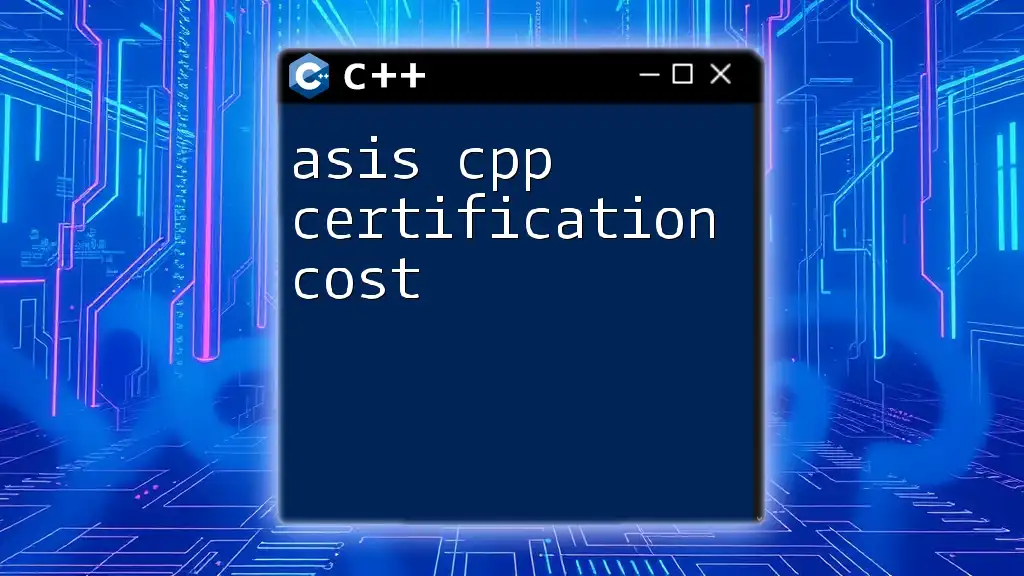
Frequently Asked Questions (FAQs)
What is the average salary for certified CPP professionals?
Professionals with CPP certification can command competitive salaries, often ranging significantly based on the region, experience level, and industry demands.
Can I self-study for the CPP certification exam?
Absolutely! Many successful candidates have achieved their certification through self-study, provided they utilize the right resources and practice effectively.
Are there online resources available for CPP certification preparation?
Yes, numerous online platforms offer courses, webinars, and tutorials specifically designed for CPP certification preparation.
What is the difference between CPP certification and other programming certifications?
While other certifications may focus on broader programming languages or paradigms, CPP certification zeroes in on the C programming language and its preprocessor, providing specialized knowledge essential for targeted applications.

